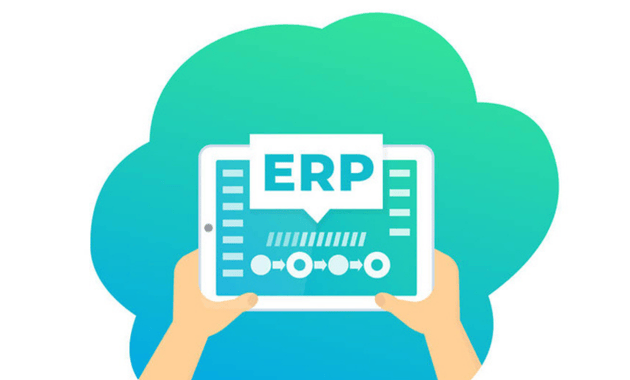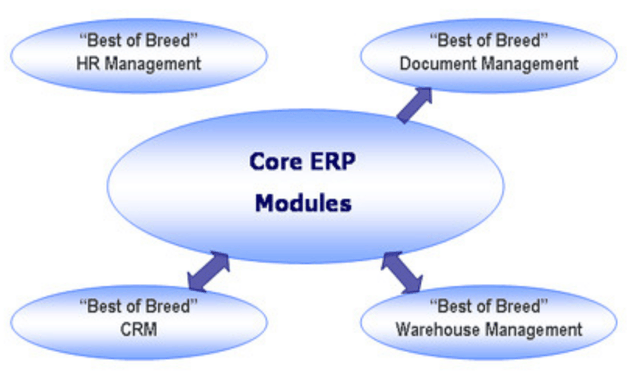ERP versus Best of Breed
It seems reasonably straightforward: select and implement a new ERP system to replace those legacy systems that simply have to go. “ERP is a one-stop shop,” you’ve been told. “ERP will do everything you need.”
But what about that system you’ve just read about that provides amazing functionality for one specific part of your operation and has features that could be invaluable to your business? Will ERP systems be able to provide the same depth of functionality? Maybe 100% ERP isn’t the answer? What should you do?
While ERP dominates the business systems market there are a huge number of other systems available that address specific business needs. These systems typically focus on a specific application or business process and are often described as “best of breed” solutions. (This is obviously a misnomer: they can’t all be the best! The term “point solution” is less frequently used but probably more apt.)

There are solutions on the market that cover almost every conceivable business activity. Those most likely to feature in ERP vs. Best of Breed decisions include:
- Laboratory Information Management Systems (LIMS)
- Document Management / Enterprise Content Management Systems
- Sales Force Automation Systems
- Warehouse Management Systems (WMS)
- Advanced Planning & Scheduling Systems
- Plant Maintenance / Enterprise Asset Management (EAM) Systems
- Customer Relationship Management Systems (CRM)
- Human Resources Management Systems (HRMS)
Best of breed systems can fit into a business systems landscape in different ways, depending on your information system strategy. Typically they’re likely to be implemented around a core set of ERP modules. Depending on requirements, the best of breed systems might be fully or partially integrated with the core ERP system. In the diagram shown below the core ERP system isn’t integrated with HR system, there is a one-way interface to the Document Management system and the CRM and Warehouse Management systems are fully integrated.
Diagram 1: Best of Breed Integration with core ERP
The selling proposition for best of breed systems is straightforward: specialisation and focus on a single core area of expertise allows best of breed products to deliver levels of functionality and innovation that you simply won’t find in large ERP suites. On the other hand, ERP vendors insist that they can deliver credible, fully-integrated and cost-effective solutions that better anything best of breed vendors have to offer.
So which claim is true? While there’s no doubt that best of breed systems often offer functionality that ERP can’t compete with, they usually can’t offer full integration with your ERP system. Many ERP systems will offer functionality that’s perfectly adequate for most environments, with full integration and, potentially, for a lower cost. The functionality available in ERP suites has increased massively over the last 10 years, driven by R&D spend and acquisitions. ERP vendors often acquire best of breed software vendors and integrate the acquired technology with their ERP solutions, thereby enhancing their ERP offering. (As an aside, watch out for different user interfaces during ERP system demos – possibly betraying different origins for parts of the system!)
See also ERP Selection Strategy: Cultivating Vendor Engagement
Deciding on a systems strategy is complex, and, unfortunately, there’s no single “right answer”. A comprehensive review of your Information Systems strategy should look at all the available options, including best of breed. It should take your business strategy and existing systems into account while considering costs, risks and, most importantly, projected business benefits.
This blog was written by John Donagher, Managing Partner at Lumenia. If you would like further information on ERP Strategy please send an e-mail to John Donagher.



